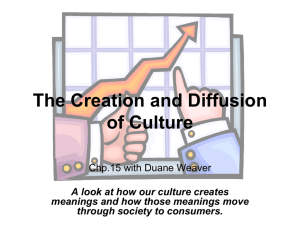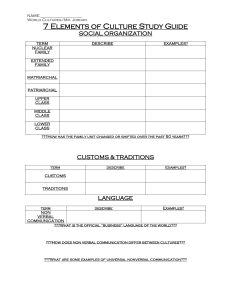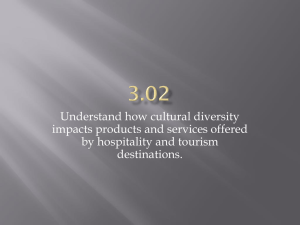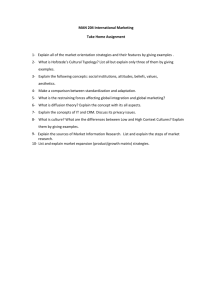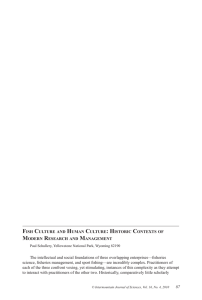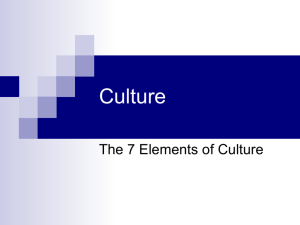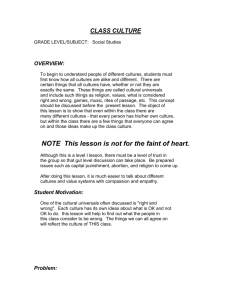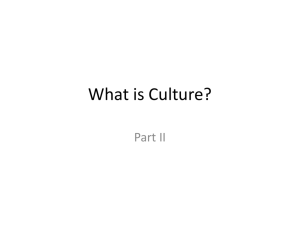Cultural Diffusion IB HL - Geog
advertisement
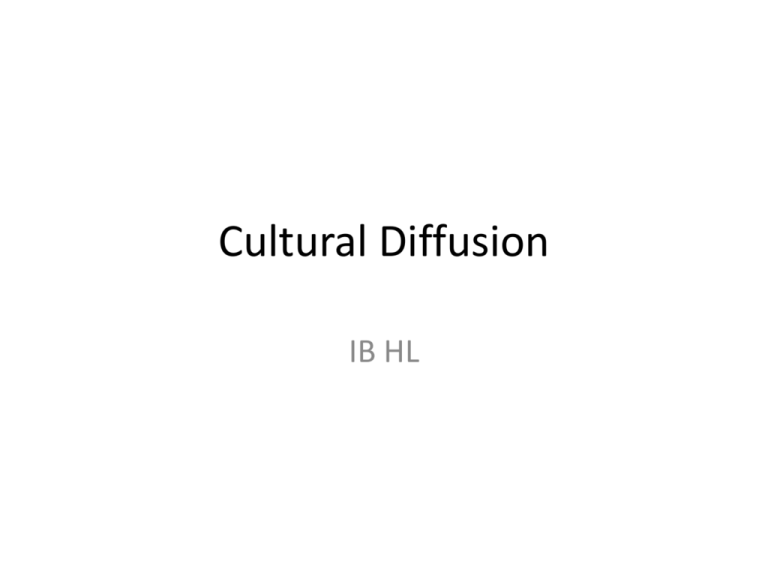
Cultural Diffusion IB HL Culture • Shared meanings which people who belong to the same community, group, or nation use to help them interpret and make sense of the world. • These meanings include language, religion, customs, tradition, and ideas about place. • Cultures cannot be fixed but change and shift historically. Culture • Culture is a process embodied in the material and social world. • Culture gives us a sense of “who we are”, “where we belong”, a sense of our own identity, and identity with others. • Cultures are how identities are formed. A Global Culture? • The world is changing fast and new technologies means the world is becoming more global and interconnected. • The increased speed of transport and communications and the growth of international migration have changed everyday lives. • The power of global financial markets has increased. Music • Cultural expression. • Not dependant on written or spoken language. • Production, distribution, and consumption of music have a particular geography. • The music industry is dominated by the UK and USA. • Migrations of people have had cultural impacts on music. TV • Originally produced for domestic audiences within national boundaries. • TV channels are now globally disseminated. • USA, France, Germany and the UK are the main exporters of TV programmes. • Brazil, Mexico, Egypt, Hong Kong, and Spain are increasing their output. Sport • Forms of cultural expression. • Football (REAL football) is the most obvious. • Inclusion of sports in the Olympic Games educates people. • TV allows people to view various sports in different parts of the world. Tourism • Mainly dominated by “rich” people. • It is exploitative. • Sex tourism??? • Dependency in some countries to exploit women. • Allows people to experience other cultures. Activities • Using Geography For The IB Diploma P144-152, answer the following… 1. What are cultural traits? 2. What customs exist within Mexico City and what are your opinions on them? 3. Why are differences in dress between cultures less prominent than they were in the past? 4. How have TV, Sport, and Tourism lead to cultural diffusion? 5. Using Figure 6 (P152), what does the graph show and what may be the reasons behind it?
